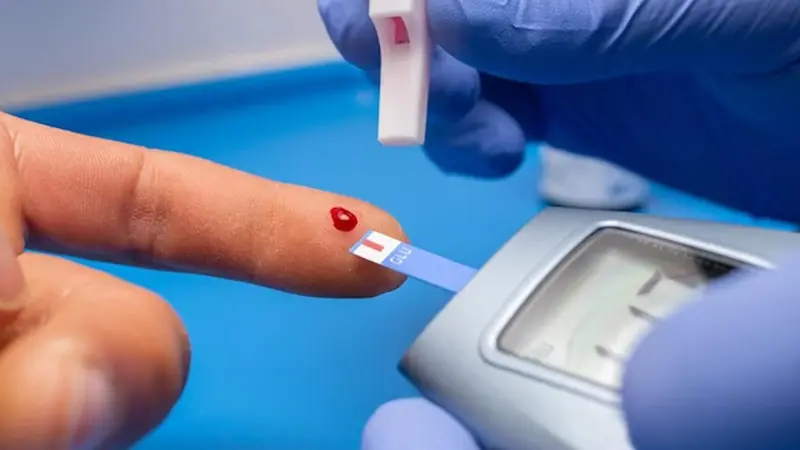World Diabetes Day, led by the International Diabetes Federation (IDF) is celebrated every year on 14th November. It is the primary global awareness campaign focusing on diabetes mellitus. This day marks the birthday of Frederick Banting who, along with Charles Best, conceived the idea that led to the discovery of insulin in 1922.
Diabetes is a group of common endocrine diseases characterized by sustained high blood sugar levels. It is caused either because the pancreas stops producing enough insulin, or the cells of the body becomes unresponsive to the hormone's effects.
Symptoms include thirst, polyuria, weight loss, and blurred vision. If not treated properly, the disease can lead to various health complications, including disorders of the cardiovascular system, eye, kidney, and nerves. Diabetes causes almost around 4.2 million deaths every.
However, Type 2 diabetes is a largely preventable and treatable non-communicable disease that is rapidly increasing in numbers worldwide. Type 1 diabetes is not preventable but can be managed with insulin injections.
Is diabetes reversible?
According to endocrinologist Sydney Blount, MD, “Type 2 diabetes is a chronic disease, so we don't say it's 'reversed' or 'cured.' Instead, we say it's in remission. Environmental factors, like lifestyle, also play a large role. Not everyone with Type 2 diabetes needs treatment with insulin. Many glucose-lowering medications can be used before insulin, depending on the individual.”
“Medications, like metformin, can prevent prediabetes from progressing into diabetes. However, these drugs aren't as effective as making lifestyle changes," says Dr. Blount. "You can prevent and reverse insulin resistance and prediabetes by adopting healthy lifestyle habits. The key is to start making changes early on,” he further explained.
Blandine Laferrère, M.D., a professor of medicine at Columbia University in New York City said, “You can put diabetes into remission, but it’s not a cure. Studies had showed if you control diabetes well with medication, you can decrease the cardiovascular complications, but there was no way of putting diabetes in remission.”
According to UCLA internist and diabetes expert Obidiugwu (Kenrik) Duru, two different approaches to eating less can work to reverse diabetes in most, but not all, people includes bariatric surgery and weight loss drugs.
He said, “Diabetes can be defined as high blood sugars no matter what makes them high, reversing diabetes can be accomplished by eating less via any method, whether it’s personal resolution, medication, or surgery.”
